Europe-wide strikes spread to Germany
Millions of people across Germany have faced transport disruptions resulting from a cost of living mega strike. Airports as well as bus and train stations across Germany have ground to a standstill.
The strikes and walkouts caused disruption for millions of people during one of the largest walkouts in decades in Europe's biggest economic powerhouse.
The 24 hour "warning" strikes had been called by the Verdi union, and, the railway and transport union EVG.
More than 400,000 transport workers have taken part in industrial action with flights at eight major airports, including those in Munich, Frankfurt and Hamburg, affected by the strikes.
The German Airports Association, ADV, said that about 380,000 travelers will not be able to take off on Monday.
Well, if I had known it I wouldn't have come here to try it. I'm a bit shocked, actually, I didn't heard [sic] of it.
Stranded German Traveler
Long distance rail services were also suspended across Germany. Hamburg, which is Germany's largest port, was also hit by the walkouts.
Employers have offered a 5% pay increase over a period of 27 months and a one off payment of €2500.
Unions, however, are demanding a double digit rise, and have called the proposals unacceptable with inflation which reached 9.3% in February.
Verdi has demanded a 10.5% pay raise for its members citing rising energy and food costs.
The strikes in Germany are part of major industrial actions, which have hit major European economies as higher food and energy prices have dented living standards.
We are on strike today because inflation is just hitting us so hard. We have been losing wages in real terms for two years.
We can no longer afford our lives. The heating costs are extreme, the gasoline is extreme.
We have to think every time we go shopping; do we take this with us or not?
We need the money to finance our lives and that's why we are here.
Striker
Strikes are never positive because they paralyze the economy in the truest sense of the word. Nothing moves anymore. We also have to say that the wage demands may certainly be attractive for the strikers. But one thing must not be ignored; these prices will be passed on. The companies, and the state, will pass on the wage increases in the form of fees and higher prices. That means that inflation with these effects will certainly remain high. That is part of the truth.
Robert Halver, Capital Markets Analyst, Baader Bank
For years Germany was heavily dependent on Russia for gas and has been particularly hard hit by higher prices with inflation rates exceeding the euro area average in recent months.
The walkout is the biggest in Germany since 1992. Persistent cost pressures have pushed central banks across Europe to a series of interest rate increases.
However Germany is not the only country to deal with massive strikes.
In the UK the government is engaged in pay disputes across several sectors as workers demand higher wages to keep pace with surging inflation, with strikes at schools, railways, and, hospitals, taking place on a regular basis.
But there is still what's called, as you know, Core inflation, which is driven by underlying demand in the economy, things like pay settlements that's more than 6% which I think is going to be harder to bring down.
So I think there is absolutely no room for complacency and we need to really keep our eyes on the target. Well I don't believe they're overreacting. I think there is still inflationary pressure in the economy.
I am very concerned about it. And I think we need to keep our eye on the ball. You know, only a week ago, we found that inflation had actually gone up from 10.1 to 10.4% and I think that demonstrates there can be absolutely no room for complacency.
Jeremy Hunt, Chancellor of the Exchequer, UK
More than 1400 security guards at Heathrow, the UK's busiest airport, are going on strike over the Easter holidays, which will force British Airways to cancel something in the order of 32 Heathrow Airport flights per day.
Annual inflation in UK shops surged to its highest in at least 18 years in March. The British Retail Consortium food costs alone have surged 15% within the past year.
And in France, which has witnessed days of strikes and protests over the controversial pension reforms, people are angry over the overhaul, which includes increasing the retirement age from 62 to 64.
Nationwide protests erupted after President Emmanuel Macron, almost two weeks ago, pushed the new pension law through Parliament using a special provision sidestepping any votes.
Unions have vowed mass protest will continue until the government backs down.
The World Bank has warned overlapping crises could lead to a sharp slowdown across the globe.
Analysts have warned that things could get worse with steeper declines in potential growth if a global financial crisis or recession come to pass.
For me the banking problem is only the effect not the cause of the problem. Our problem in this financial world is dramatic over indebtedness, and the states would all like the banks to take these government securities into their own custody.
But when interest rates are raised dramatically, the securities are worth less because the prices also fall. You have to watch out for that.
So the states should finally learn to make fewer debts, otherwise, we will have an unsustainable problem in the long term.
Robert Halver, Capital Markets Analyst, Baader Bank

Trump targeting Ukraine's mineral wealth

Canadian Zionist Lawfare against opponents of Gaza genocide

Israel's banking crisis
VIDEO | Indian parliament approves controversial Muslim Waqf law
Yemen's army targets Tel Aviv, downs Giant Shark F360 drone in Sa’daa amid Israel’s genocide in Gaza
Islamic scholars issue fatwa urging Muslim nations to support Palestinian resistance
VIDEO | Trump trade war
Houthi: Intensified US aggression against Yemen failed
Israeli captives held in areas targeted for evacuation by the regime: Al-Qassam Brigades
VIDEO | President Yoon of South Korea impeached, dismissed
Trump tariffs led to a $2.5 trillion wipeout for the US stock markets


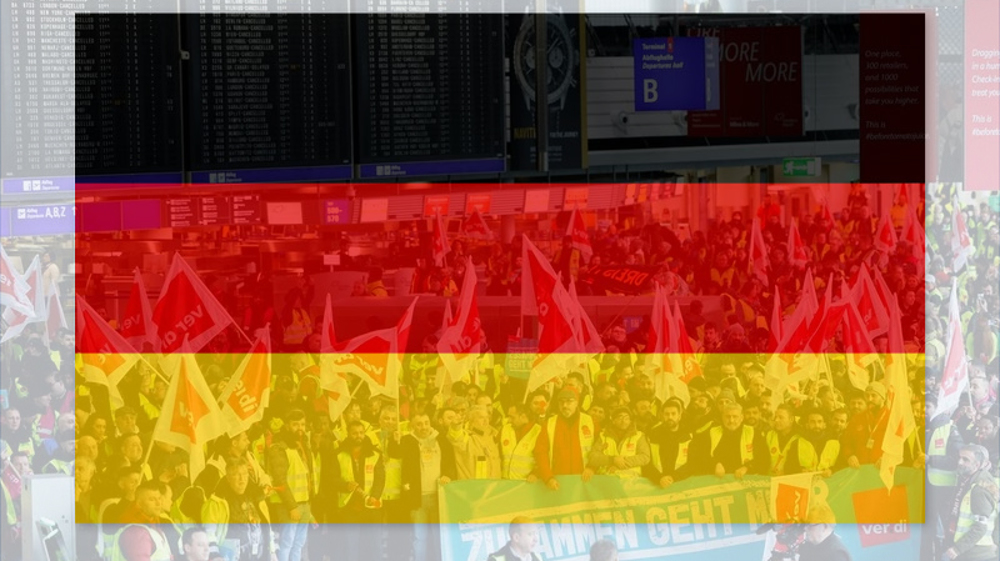

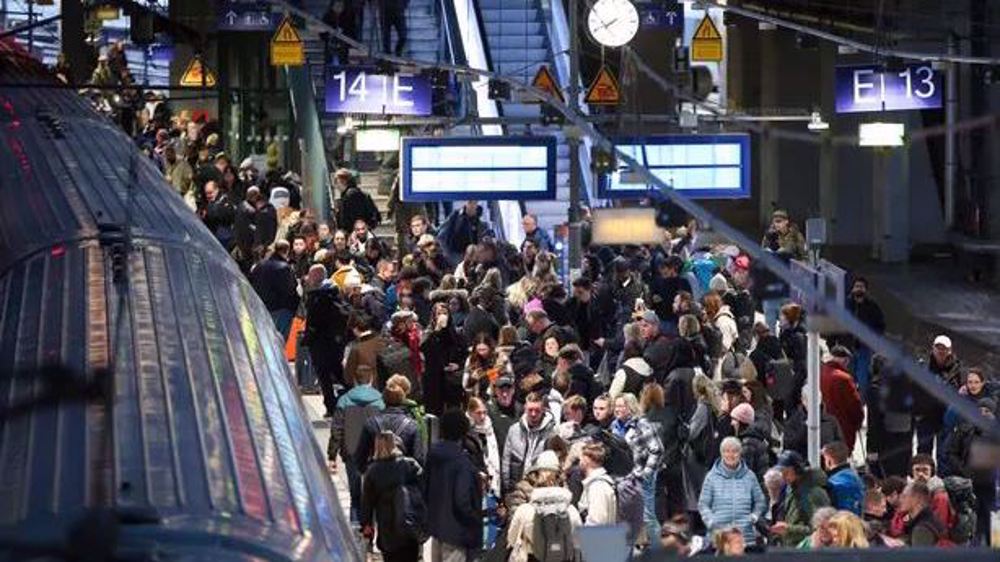
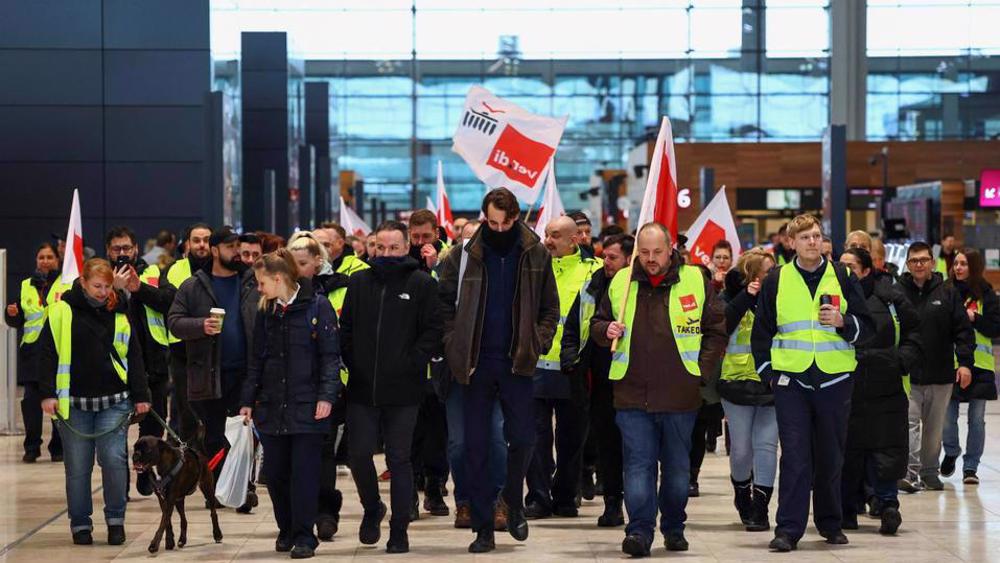







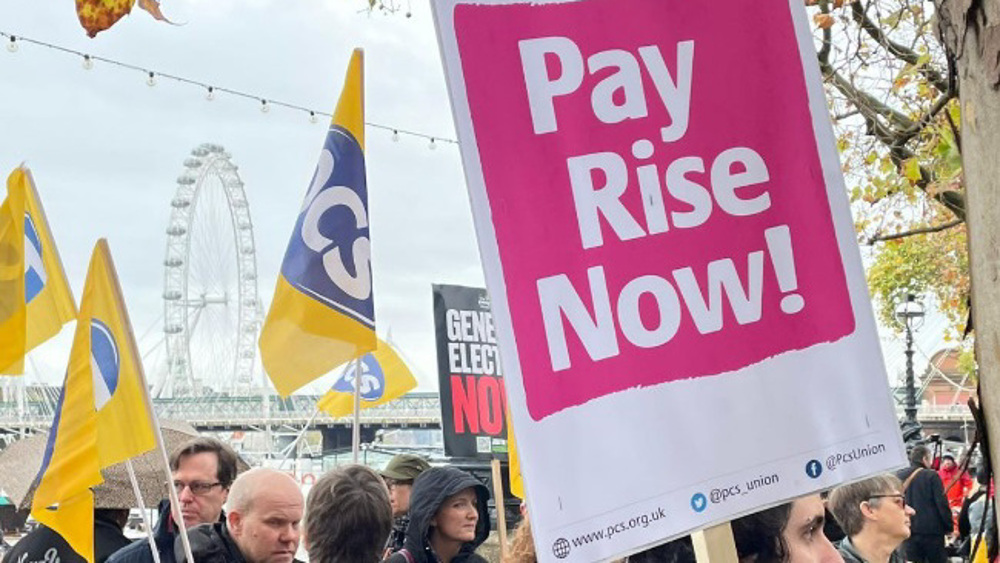
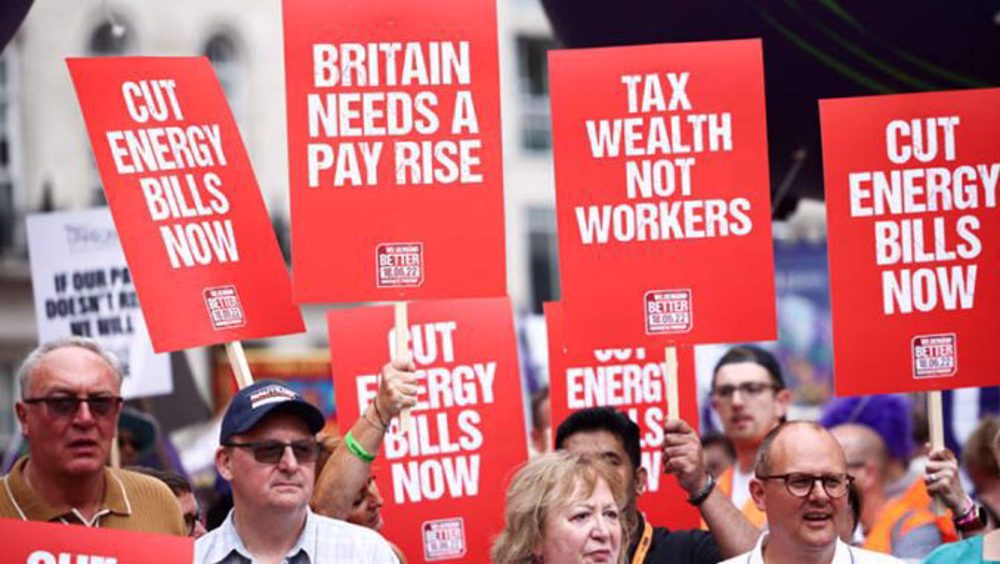
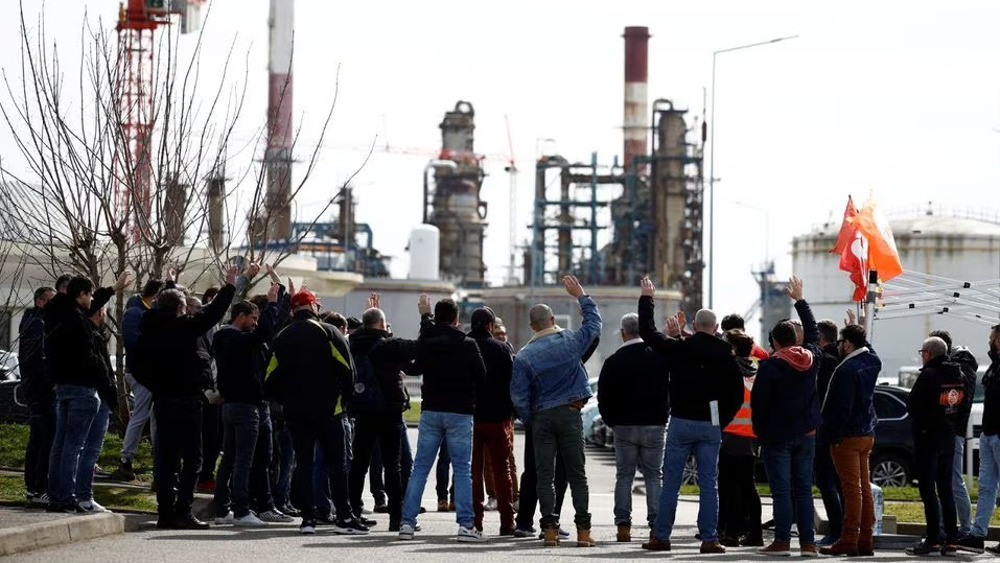
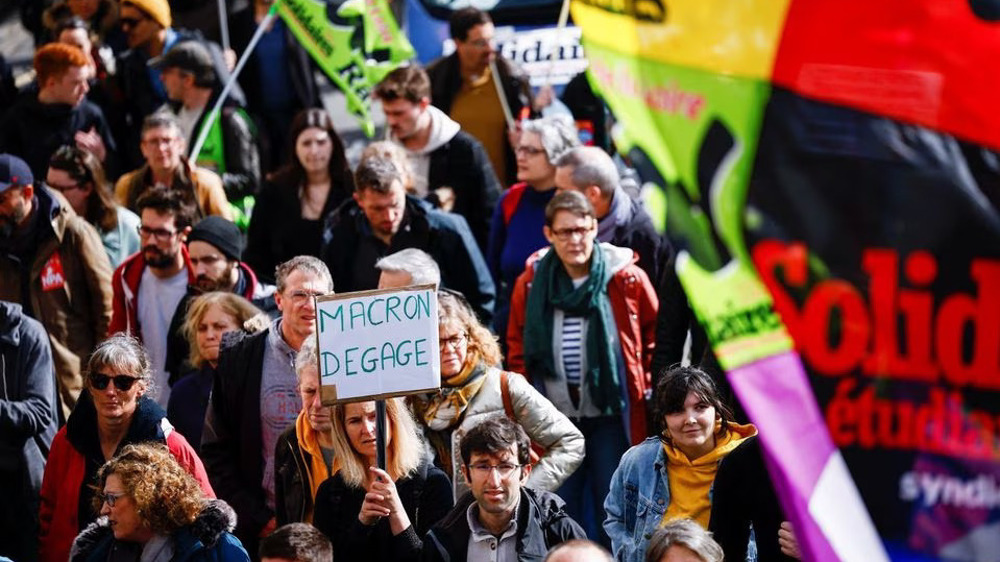
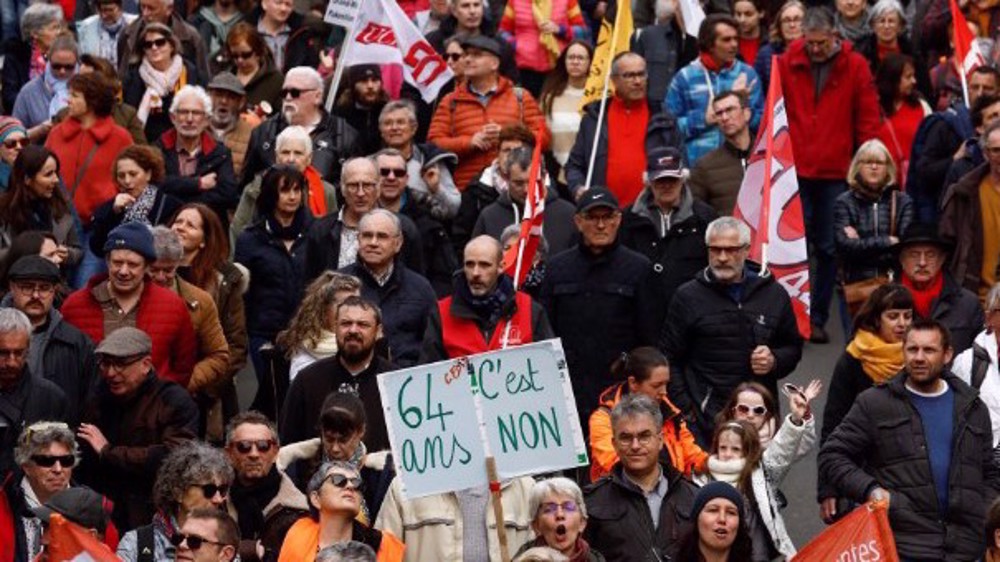

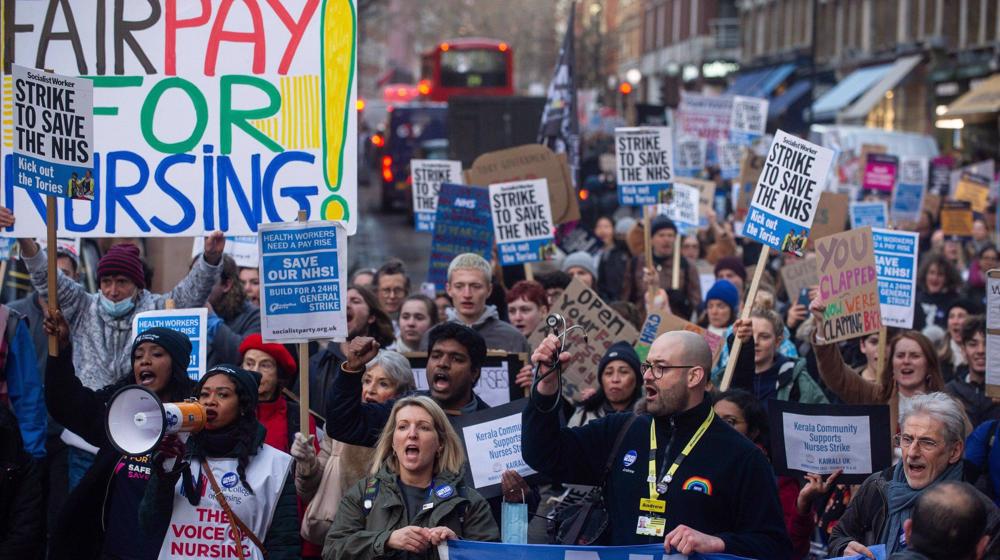

 This makes it easy to access the Press TV website
This makes it easy to access the Press TV website